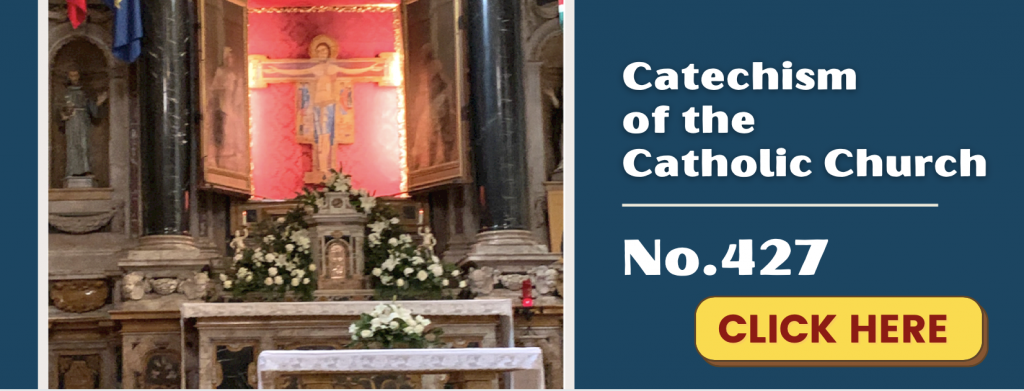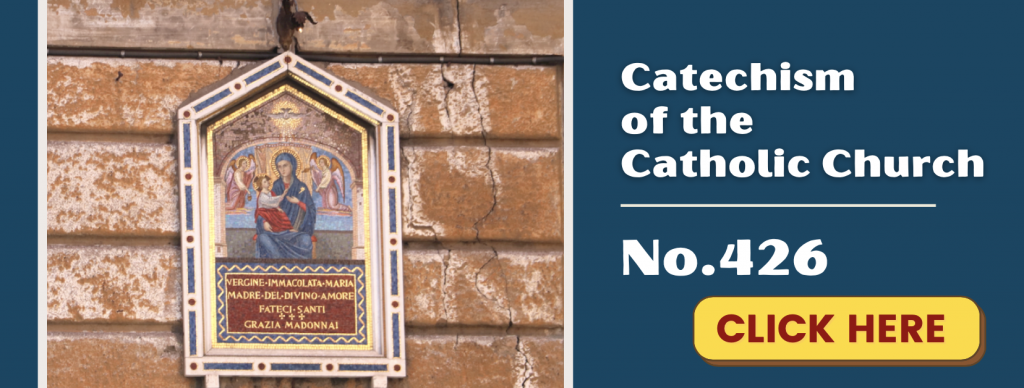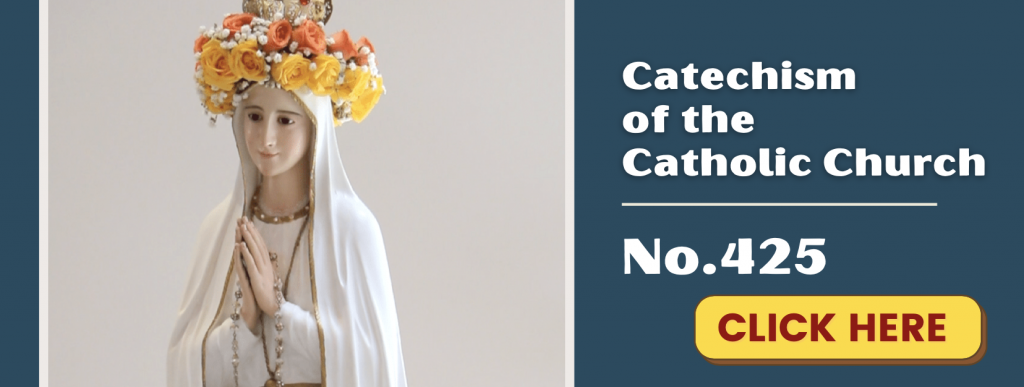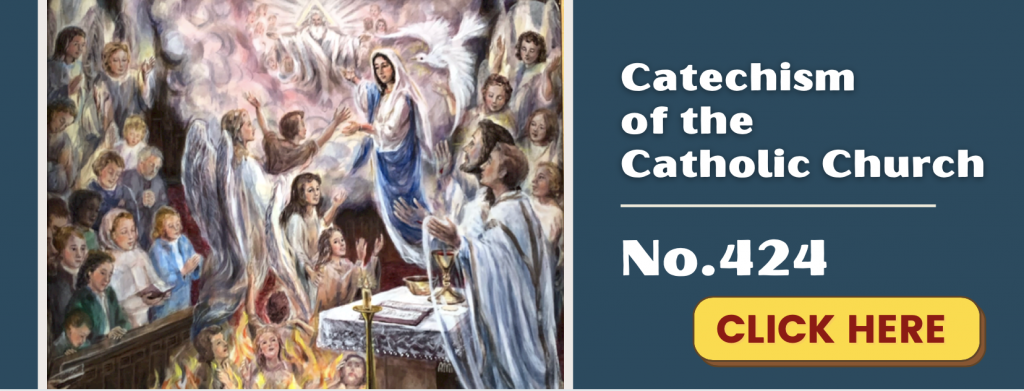Memorial of Saint John Vianney, Priest

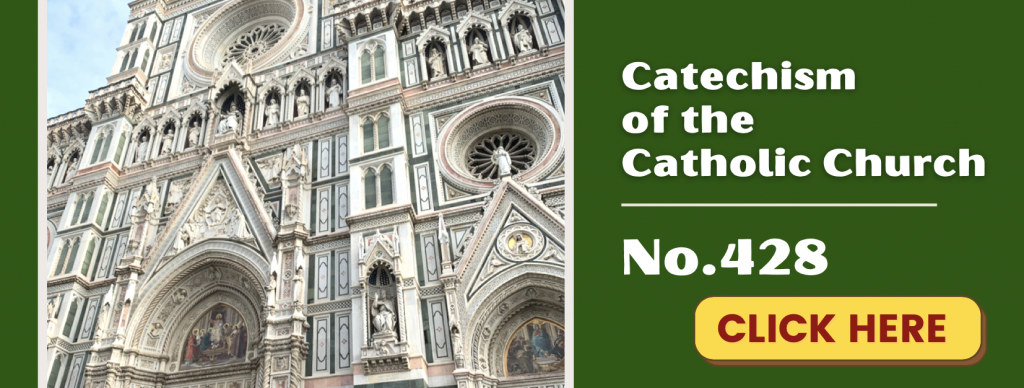

“For greater things you were born.” (Ven. Mother Luisita)
WEDNESDAY, AUG. 4th Mt. 15: 21-28 “She said, ‘Please, Lord, for even the dogs eat the scraps that fall from the table of their masters.’ Then Jesus said to her in reply, ‘O woman, great is your faith! Let it be done for you as you wish.’ And her daughter was healed from that hour.”
The Blessed Virgin Mary, who was the greatest creation of God, chose to be small in the eyes of all, and thus glorified God all the more!
On the Humility of the Blessed Virgin Mary… Excerpt from “Introduction to True Devotion to Mary” by Saint Luis de Montfort…
1. It was through the Blessed Virgin Mary that Jesus came into the world, and it is also through her that He must reign in the world.
2. Because Mary remained hidden during her life she is called by the Holy Spirit and the Church “Alma Mater”, Mother hidden and unknown. So great was her humility that she desired nothing more upon earth than to remain unknown to herself and to others, and to be known only to God. (“Alma Mater” comes from two Latin words meaning “nourishing or bountiful mother.”)
3. In answer to her prayers to remain hidden, poor and lowly, God was pleased to conceal her from nearly every other human creature in her conception, her birth, her life, her mysteries, her resurrection and assumption. Her own parents did not really know her; and the angels would often ask one another, “Who can she possibly be?”, for God had hidden her from them, or if He did reveal anything to them, it was nothing compared with what He withheld.
4. God the Father willed that she should perform no miracle during her life, at least no public one, although He had given her the power to do so. God the Son willed that she should speak very little although He had imparted His wisdom to her.
Even though Mary was His faithful spouse, God the Holy Spirit willed that His apostles and evangelists should say very little about her and then only as much as was necessary to make Jesus known.
5. Mary is the supreme masterpiece of Almighty God and He has reserved the knowledge and possession of her for Himself. She is the glorious Mother of God, the Son who chose to humble and conceal her during her lifetime in order to foster her humility.
He called her “Woman” as if she were a stranger, although in His heart He esteemed and loved her above all men and angels. Mary is the sealed fountain and the faithful spouse of the Holy Spirit where only He may enter. She is the sanctuary and resting-place of the Blessed Trinity where God dwells in greater and more divine splendor than anywhere else in the universe, not excluding His dwelling above the cherubim and seraphim. No creature, however pure, may enter there without being specially privileged.
6. The saints have said wonderful things of Mary, the holy City of God, and, as they themselves admit, they were never more eloquent and more pleased than when they spoke of her. And yet they maintain that the height of her merits rising up to the throne of the Godhead cannot be perceived; the breadth of her love which is wider than the earth cannot be measured; the greatness of the power which she wields over One who is God cannot be conceived; and the depths of her profound humility and all her virtues and graces cannot be sounded. What incomprehensible height! What indescribable breadth! What immeasurable greatness! What an impenetrable abyss!
7. Finally, we must say in the words of the apostle Paul, “Eye has not seen, nor ear heard, nor has the heart of man understood” the beauty, the grandeur, the excellence of Mary, who is indeed a miracle of miracles of grace, nature and glory. “If you wish to understand the Mother,” says a saint, “then understand the Son. She is a worthy Mother of God.” Hic taceat omnis lingua: Here let every tongue be silent. END
Whereas we give greatest Glory to God in acknowledging our smallness, and allowing Him to do everything for us!
Christians are Small People… by Servant of God Madeleine Delbrel (+1964)
The law of Christ may only be lived by people who are gentle and humble of heart. It is this gentleness and humility which are the characteristics of Jesus Christ in His filial love for God and His fraternal love for human beings.
Whatever their personal gifts, Christians are small people. Small people, whatever their place in society, their jobs, their possessions, their class, their race, whatever the development and power of the human sciences, whatever the discoveries concerning the prodigious evolution of the human race and its history – in spite of all this, Christians remain people who are small.
Small in God’s presence because God created them and they depend on Him. Whatever the journeys that mark their lives and their fortunes, they came from God and they are going to God. They are gentle like weak, loving children, close to their Father who is strong and loving. They are small because they know that they are in God’s presence and they know only a few things, can do only a few things, and are limited in their love and in their knowledge.
They do not argue about the will of God in the events that happen, nor do they argue about what Christ has commanded them to do, so that in these events they may themselves, for their part, do the will of God.
They are gentle like the trusted and active performers of a work, the enormousness of which is hidden from them, while yet they know their own particular task.
Copyright 2021 Oblates of the Virgin Mary / St. Peter Chanel Church, Hawaiian Gardens, CA

